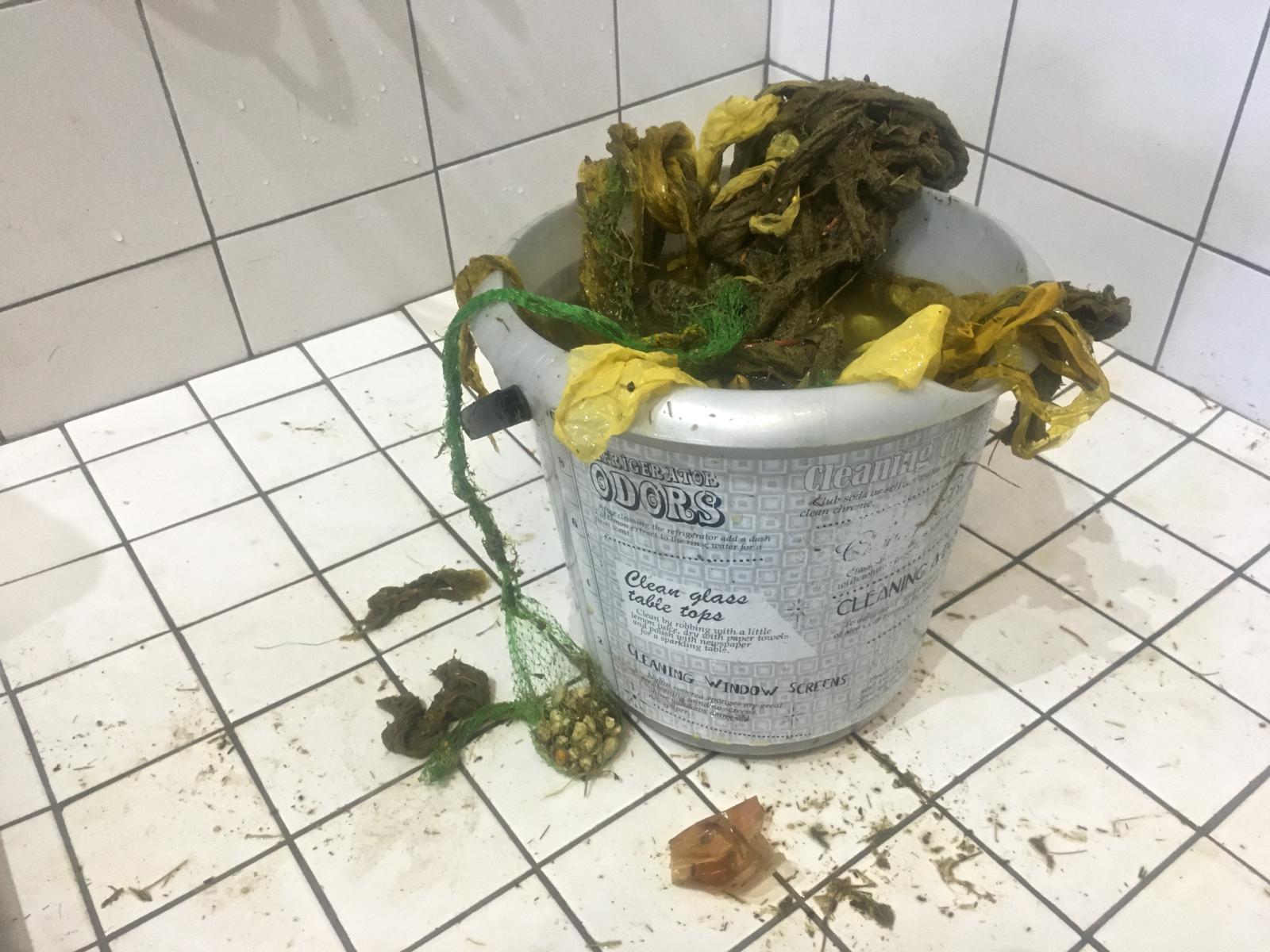
Deer found with six kilos of plastic in stomach

A deer killed by wildlife services in Arosa, southeast Switzerland, was found to have six kilogrammes of plastic waste in its stomach.
The deer was killed after it became a safety risk because of its behaviour, according to a statement by the hunting and fishing authorities in canton Graubünden on TuesdayExternal link.
The animal had been attracted to the villages of Arosa and Langwies by compost heaps, birdboxes and other food sources.
During examination of the carcass, six kilogrammes of plastic waste were found, including plastic gloves, string, bird food nets and much more. The authorities said some of these items had been for years in the body of the animal, which weighed less than other deer of the same age.
Wild animals in Graubünden are known to cross roads and enter villages and settlements in search of food as soon as the first snow falls. But this can have fatal consequences, as they may also ingest plastic and other waste which cannot then be excreted. In addition, the deer lose their natural shyness and no longer flee from humans.
The Graubünden authorities remind the public that both active and passive feeding of game is forbidden by law in the canton.

In compliance with the JTI standards
More: SWI swissinfo.ch certified by the Journalism Trust Initiative




























You can find an overview of ongoing debates with our journalists here . Please join us!
If you want to start a conversation about a topic raised in this article or want to report factual errors, email us at english@swissinfo.ch.